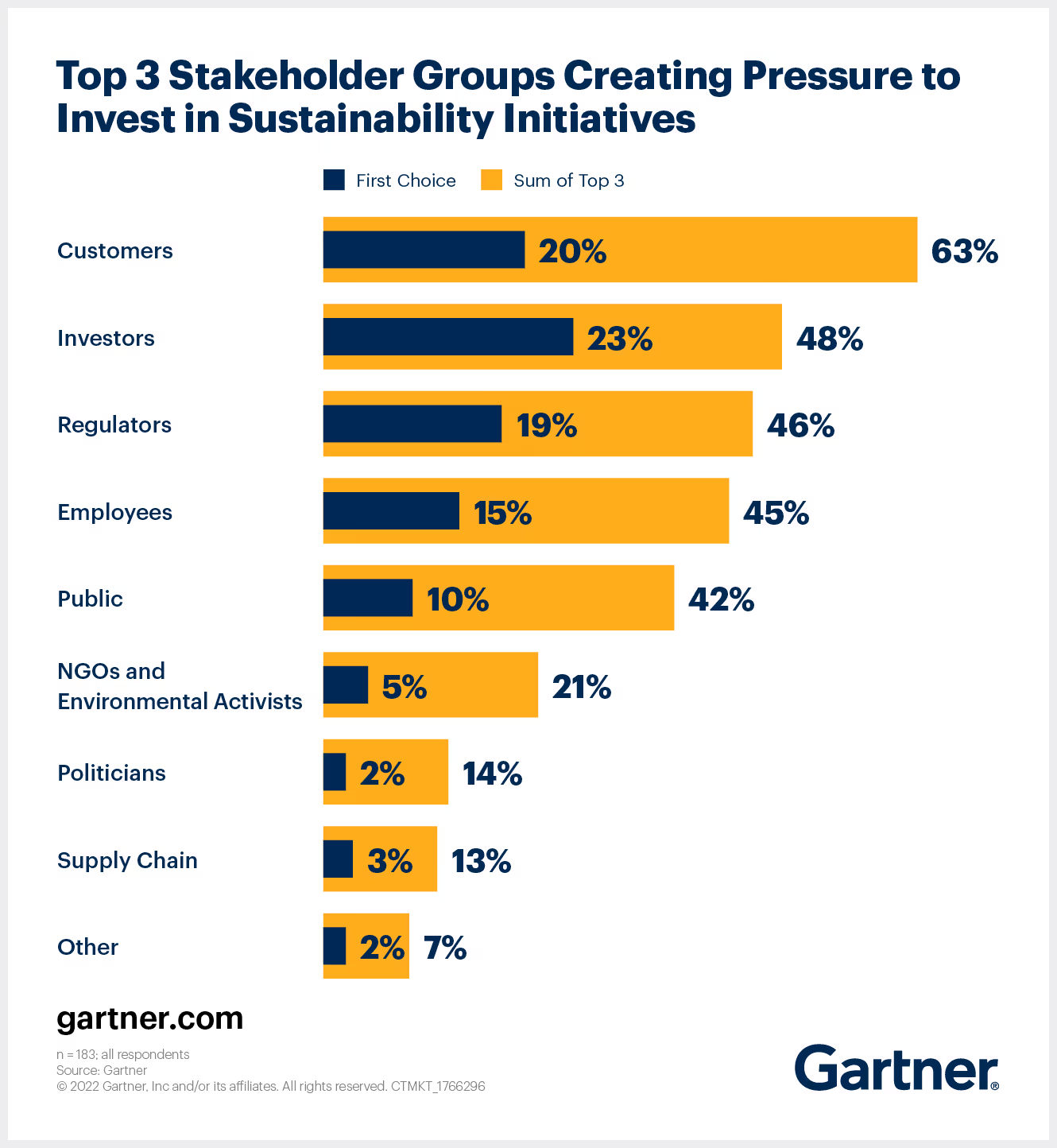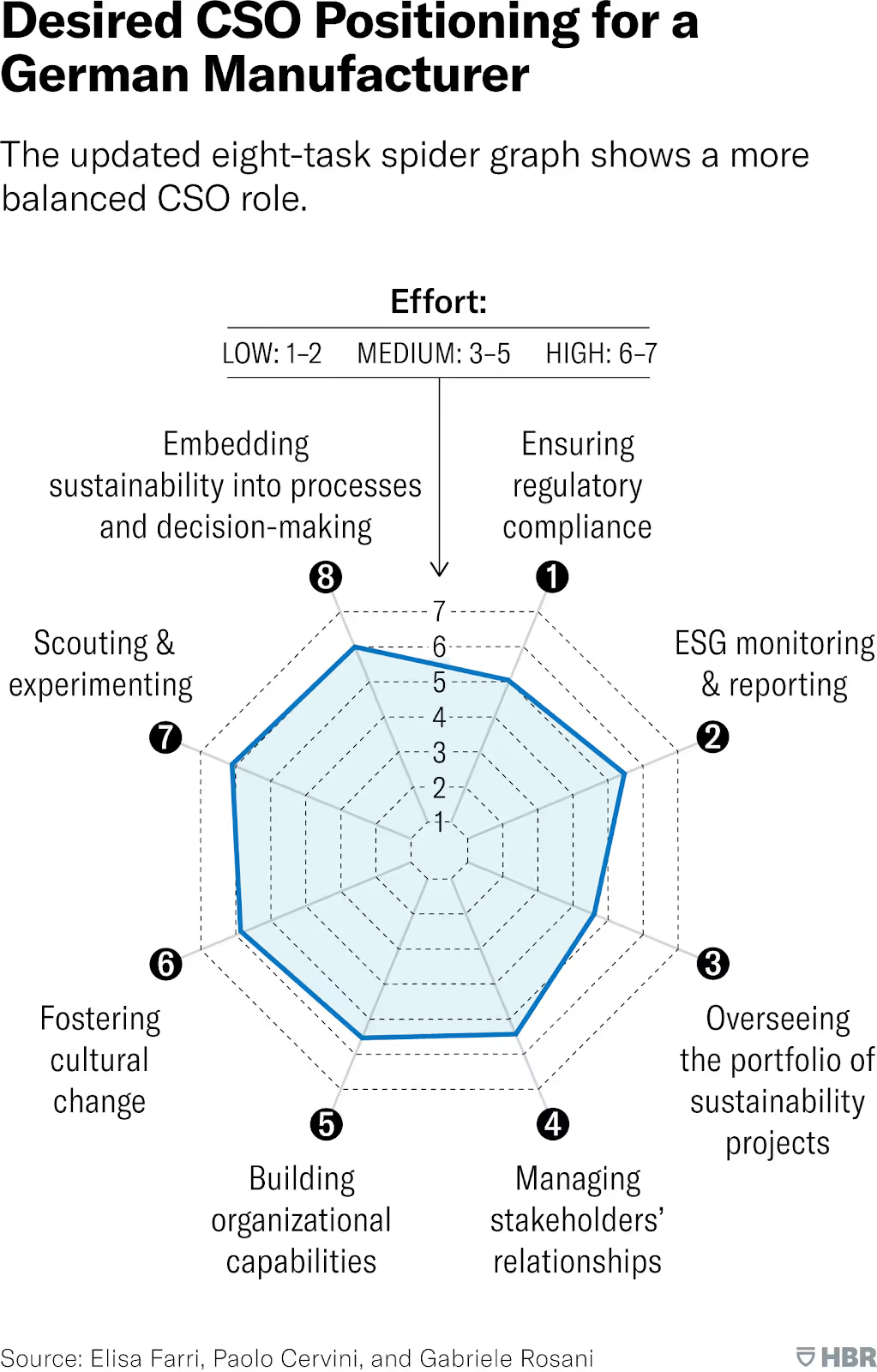Despite the exponential growth of the term ‘sustainability’ and companies hiring more Chief Sustainability Officers (CSOs) than in the previous five years combined; the role and responsibilities of CSOs often remain vague. Accordingly, this article provides a guide for CSOs to ensure they are meeting their responsibilities across the realms of environment, social and governance (ESG) and undertaking genuine action against the most pressing issue of our time; climate change.
What is a Chief Sustainability Officer?
A Chief Sustainability Officer (CSO) is primarily responsible for overseeing the environmental impact of a company or organisation. In doing so, they are in charge of assessing the current and future impact assessment of a company or organisation. Meanwhile, they must ensure that government policies and regulations are abided by within all aspects of their business operations.
CSOs ask vital questions such as:
- How can we implement a sustainability strategy across all business departments to create long-term value?
- How can we make a positive impact without reducing profit?
- How will resources be allocated within the transition towards net-zero?
Utilising a circular economy-oriented approach to thinking as such will therefore help reduce waste and pollution, circulate products and materials, and regenerating substances. Meanwhile, CSOs have a vital responsibility to ensure the company or organisation is not intended, or unintentionally, engaging in practices that reflect elements of greenwashing.
How leadership will influence your sustainability agenda

Source: Gartner
There are various ways in which an ESG programme can be structured, and the development of an ESG framework often sees the allocation of various positions and titles which work in different capacities depending upon a company’s organisational structure. However, to enact a structure that effectively informs decisions and builds accountability within management, a cross-functional approach which seeks to align all components of a business is vital.
Having an ESG and sustainability management strategy in place does not necessarily mean a company requires a CSO. However, for a company or organisation to ensure that sustainability is at the core of their business, the development, implementation and management of an ESG strategy by a CSO are highly recommended. Since ESG is becoming such a central focus of businesses and organisations, it is increasingly rare not to have someone in charge of these issues. Furthermore, sustainability leaders' reporting lines significantly reflect the extent to which an organisation prioritises ESG as a strategic imperative. Sustainability officers who report directly to the CEO are viewed as playing a key role in decision-making. Meanwhile, those who report solely to finance may be seen to put an unbalanced premium on what investors want.
Whilst there is no ‘secret formula’ for an ESG strategy; the leadership structure utilised is a paramount factor as it dictates reporting lines, cross-functional management and partnerships, thus reflecting how executive leaders value ESG progress. To ascertain which leadership structure best suits a company or organisation, the general counsel or executive must assess the following questions with the organisation's purpose and mission;
- Does sustainability play a central role in the company or organisation's corporate strategy? If yes, how will oversight and accountability be effectively implemented?
- If an individual is to be tasked with overseeing this, does the leader have the capacity to take ownership and oversee this portfolio?
- What does the future look like for the company or organisation?
- What kind of leaders are required to get there?
- How are the company’s competitors structuring the management and oversight of ESG and sustainability issues?
As such, different organisations require different types of sustainability leaders. Whether a firm requires a CSO or not, and the type of CSO they require, ties back to the company's internal and external assessment of what role sustainability plays now and in the future.
The 10 responsibilities of a Chief Sustainability Officer:
- Regulatory awareness & compliance
- CSOs must analyse the current regulations which apply to their activities, whilst also preparing for the implications of future regulatory trends.
- In doing so, CSOs must ensure that their business or organisation is compliant with current laws and regulations surrounding sustainability; with a key focus on the specific regulations that apply to their respective industry, business type, and processes.
- Moreover, CSOs must guarantee that a risk management assessment is undertaken to reduce the impacts of potential hazards in line with regulatory standards.
- Finally, CSOs must set clear internal guidelines surrounding company procedures and employee behaviour.
- ESG monitoring & reporting
- CSOs hold a key responsibility to monitor the environmental, social and governance performance of the company or organisation, whilst also collecting relevant data and metrics following established reporting standards. Plan A provides a decarbonisation platform which streamlines this process.
- Meanwhile, CSOs should compare this data with industry peers to establish benchmarks.
- Finally, CSOs are responsible for the preparation and communication of the completed ESG report, thus ensuring transparency between internal and external stakeholders.
- Managing a portfolio of sustainability projects
- A CSO is responsible for tasks such as; planning, coordinating, reviewing progress, and tracking results to ensure the successful execution of various sustainability-focused operational efforts.
- Managing stakeholder relationships
- A CSO holds further responsibility to effectively manage stakeholders' relationships, and facilitate ongoing dialogue with both internal and external parties to cultivate sustainable, constructive and transparent relationships.
- Managing a sustainability team
- Primarily in larger companies, the Chief Sustainability Officer is responsible for leading a sustainability team.
- Enhancing organisational abilities
- CSOs are responsible for identifying gaps and determining appropriate educational initiatives to address them, such as addressing social factors via upskilling current staff or sourcing new talent.
- Moreover, a CSO should also look for innovative ways to scale these newly acquired capabilities throughout the organisation.
- Finally, A CSO is responsible for sharing and disseminating knowledge to ensure everyone has access to the necessary information and resources.
- Liaising with C-Suite members
- The Chief Sustainability Officer, being at the executive level, works closely alongside board members and other C-level positions - such as the Chief Executive Officer (CEO), Chief Financial Officer (CFO), and Chief Operating Officer (COO) - to guide corporate strategy and influence decision-making.
- Leading with a culture of change
- A CSO should lead with a culture that embraces change, firstly through assisting in defining and communicating the company or organisation’s purpose.
- The CSO is responsible for ensuring the provision of educational resources to assist the enablement of a culture of change to be championed organisation-wide.
- Finally, a CSO must ensure routines are in place which reinforce such change, thus ensuring a ‘walk the talk’ culture is in place.
- Seeking & experimenting with new technologies
- CSOs should explore the external innovation ecosystem by utilising ESG-oriented technologies, solutions and practices to unlock enhanced value.
- CSOs should oversee the utilisation of these practices by testing their applicability whilst simultaneously learning from experiments.
- Subsequently, CSOs are responsible for overseeing the scaling and adoption of such practices within the wider company or organisation.
- Ensuring sustainability is a central focus within business processes & decision-making
- Accordingly, CSOs should embed sustainability into processes and decision-making, firstly via reviewing key processes and decision-making tools.
- Furthermore, decision-makers must be adequately trained to ensure they can manage complex trade-offs.
The future of the Chief Sustainability Officer
The rise of the CSO won’t be slowing down anytime soon.
In light of numerous climate-change-induced events occurring concurrently on a global scale, sustainability and ESG must be made key focal points for businesses to ensure future growth and security. Accordingly, hiring a sustainability manager will be fundamental to shaping a successful strategy whilst maintaining a dynamic and innovative approach. Looking forward however, there must be clarity among the organisational structure, strategy and mission of the company to ensure the CSO can be as effective as possible within their role.
A study found 41% of businesses integrated ESG criteria in the variable remuneration of managers and among the criteria taken into account, the number one was CO2 emission reduction. Meanwhile, 75% of CEOs stating that they expect ESG & sustainability management pressure to intensify over the next three years, the expected continuation in growth of CSO hires in the coming years reflects a necessity to meet the expectations of internal and external stakeholders. Some specific examples of factors driving this expansion include:
- Companies are looking to bring CSOs on board to provide internal alignment and education to address growing demands from both employees and external stakeholders, particularly concerning their environmental footprint, health and safety, energy efficiency, and social responsibility.
- There is therefore a growing pressure for companies and organisations to bring on a high-level external representative who can serve as a point of contact with internal and external stakeholders regarding key sustainability issues.
- There is increasing pressure for companies to develop and implement a comprehensive sustainability strategy that is aligned with the company’s specific business objectives and processes. A well-developed and implemented sustainability strategy is increasingly crucial in driving value creation.
- An increase in ESG reporting requirements and directives necessitates a senior management position to oversee reporting issues and financial risk-related issues across various departments.
- Finally, as found by PWC, companies with CSOs are better ESG performers and therefore have a competitive advantage.

Source: Gartner
How future CSOs set up management and oversight is crucial to the effective execution of their function. Furthermore, it is also crucial to the organisation’s credibility on ESG and sustainability-related issues. Therefore, the future will inevitably see different firms requiring different types of CSOs to drive transformation.

Source: Forrester Research
Moreover, for future ESG strategies to be effectively implemented, it will be increasingly important for CSOs to focus upon:
- Taking ownership of ALL of the aforementioned responsibilities.
- Ensuring that not only sustainability but social and governance factors are also made a central focus within the wider ESG strategy.
- Defining where there are gaps, and closing these gaps.

Source: Harvard Business Review
In summary, companies can’t sit on the fence. You’re either part of the solution or part of the problem.
Growing societal and regulatory demands and increasing pressure from internal and external stakeholders pose vast financial risks to businesses that do not take action against climate change. Meanwhile, companies that do not implement an actionable and meaningful ESG strategy within their operations will not benefit from such value creation.
Future-proof your company's decarbonisation strategy with Plan A. Explore our solution or book a demo today.




.jpg)
.webp)


